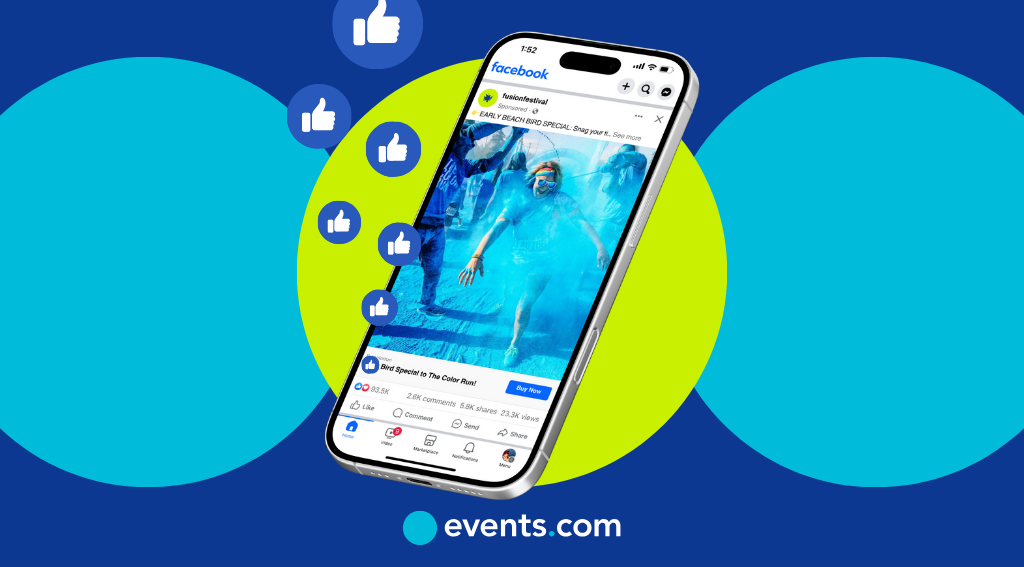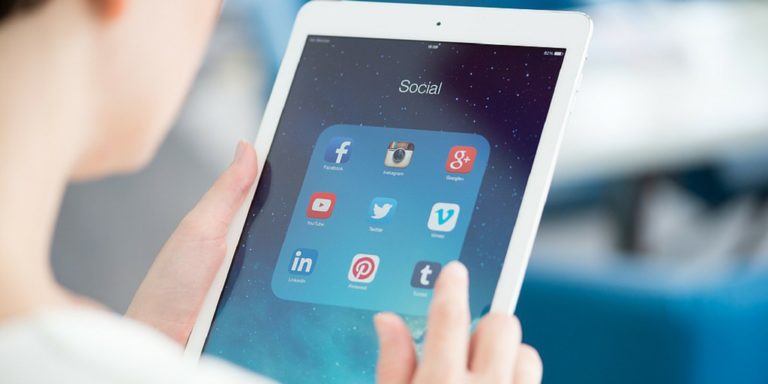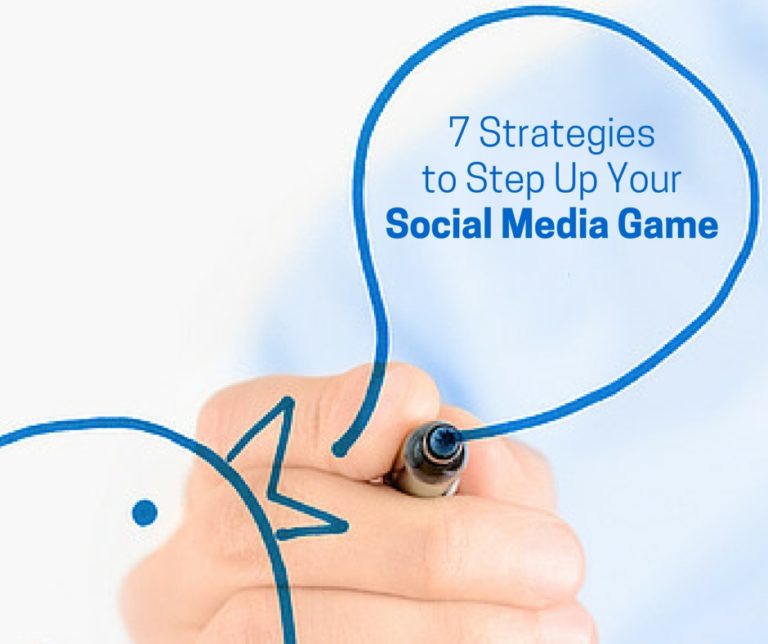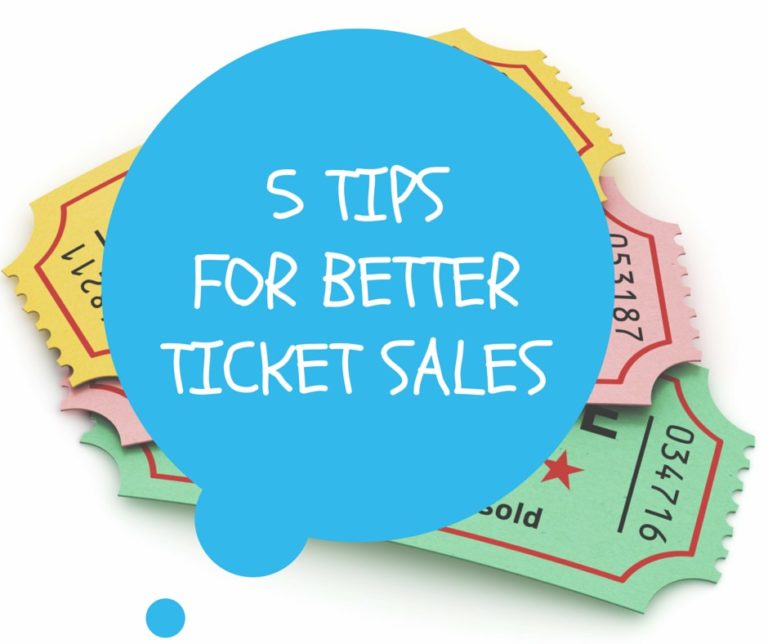Without a great marketing strategy, your event runs the risk of not getting enough attention or selling enough tickets. One of the most important ways to promote any event is through paid opportunities. In this article, we will cover the benefits of paid marketing and the seven key paid marketing strategies you can use for your next event. Keep reading!
Benefits of Paid Marketing for Events
There are enormous benefits to using paid marketing for your events. Here are a few:
- Targeted audience reach: Paid marketing can help you target specific demographics, interests, and behaviors to make sure your message reaches the most relevant people for your event.
- Increased brand recognition: Paid marketing can help you build brand awareness, an important part of the customer journey. People who remember a brand are more likely to become future event attendees.
- Sell more tickets: If you reach the right people with the messaging, more tickets sales and a greater ROI will follow.Â
- Quicker results: Paid promotion can be one of the quickest ways to attract potential customers for events. Unlike organic strategies that can take a while to get traction, paid marketing typically delivers immediate results that you can use to iterate on your strategy.
- Get measurable results: Advertising platforms often allow you to access detailed analytics and insights that can be used to measure your campaign performance, including metrics like impressions, clicks, conversions, and your return on investment.
Key Paid Marketing Strategies for Event Planners
While there are many ways event planners can use paid marketing to make their event a success, there are seven key strategies you need to know about.
1. Paid Social Media Advertising
One of the key paid marketing strategies for event planners is paid social media advertising. Social media platforms like Facebook, Instagram, X(Twitter), and TikTok offer advertising tools for event organizers to target people with specific demographics, interests, and behaviors to get the most bang for their buck. Depending on the social platform, you may need to develop social media ads in video, image, text format, or possibly all three.
Many of these platforms also allow you to access data about your paid ads so you can understand their performance and improve your strategy. Paid social media advertising is one of the easiest and most accessible ways to use paid marketing to your advantage when organizing an event. Don’t overlook its value!
2. Search Engine Marketing (SEM)
Search engine marketing is another valuable paid marketing strategy for events. Similar to social media paid marketing, with search engine marketing, you can pay for your event to get seen by more people when they make a query on a search engine like Google, rather than just relying on showing up in organic search results. You choose a keyword you want to target and then typically pay per click you get on your Google ads.
Particularly if you’re in a competitive market with a lot of similar events near you, paid search engine marketing can be a great way to stand out from the competition. You can also monitor your results with these search ads to evaluate their performance.
3. Display Advertising
When you hop on a website and see ads embedded into the site, you’re looking at display ads. Display ads are a great way to nurture long-term brand recognition and get in front of people based on their interests or attributes. They require you to make engaging ad marketing creatives so that you can capture your audience’s attention visually. Like the other types of paid advertising tactics, you’ll have access to your ads’ analytics.
4. Influencer Marketing
Influencer marketing for events is a paid marketing strategy in which you pay an influencer to raise your brand’s awareness or promote your event. The reality is that influencer marketing is powerful, and it has one of the highest ROIs of all paid strategies. One of the reasons for this is that people are more likely to purchase a product (or event ticket) from someone they trust. So, if you find the right influencer whose audience matches the target audience for your event, you can effectively reach many people who can benefit from your event the most.
Depending on your budget, you can work with micro-influencers, thought leaders, and celebrity influencers within your niche. Done right, investing in a partnership with an influencer can do wonders for promoting your event.
5. Email Marketing
Email marketing is one of the most powerful marketing strategies around, and it can help you sell significantly more tickets for your event, depending on how you use it. If you have your own email list, you can send email campaigns promoting your event to your current audience.
You can also pay other newsletters for ad space to promote your event. Most newsletters offering ad space charge set prices based on their audience size and other metrics. When choosing a newsletter to partner with, remember to choose one with an audience that is part of the target audience for your event so that you make the most of the money spent on the ads.
6. Online Partnerships and Collaborations
Using online partnerships and collaborations can be another effective strategy when marketing your event. While we’ve discussed working with influencers, partnering with relevant websites on which you can publish blog posts or collaborating with online communities can also help you generate attention for your event.
These efforts can help you promote your event to a wider audience, whether it’s through paying your partners or offering cross-promotional opportunities. These types of collaborations can also help you build long-term relationships and keep the door open for future opportunities. This is an often overlooked yet highly effective strategy.
7. Video Advertising
If you have the resources, video advertising is another great way to promote your event to a wider audience. First, you’ll want to create video advertising strategies that capture attention and convey key information about your event, like the dates, location, and benefits. Then, you’ll need to get the final video ads on channels of your choice.
For example, you can set up a YouTube ad campaign to reach your target audience on YouTube. Alternatively, you can try to get your video ad on a local television station to reach people who may not use YouTube.
Best Practices for Paid Marketing Event Strategies
Since paid marketing strategies obviously cost money upfront, it’s important to use some best practices that can make your campaign a success. Going into the process blind can come back to bite you big time. So, to make the most of your paid marketing strategy, here are a few best practices to remember.
- Set a realistic budget: When undertaking a paid marketing campaign for an event, it’s important not to underestimate the costs. This can lead to you going over budget for your event, eating into your profits, or leaving you underpublicized with too many unsold tickets. To create the best strategy possible, estimate your advertising budget as realistically as possible. Learn more about this in our other marketing guide.
- Understand your event’s audience: To promote your event correctly, you must first understand who you want to attract. Determine your target audience’s demographics, interests, preferences, and behaviors. This understanding will help you tailor your paid marketing efforts to reach the right people with the most relevant messaging.
- Understand the benefits of your event: When crafting your promotional messaging, clearly articulating the benefits of attending your event is one of the best ways to maximize the conversions of your paid marketing campaign. Use this information to craft compelling messaging that resonates with your target audience and motivates them to take action.
- Use analytics to improve upon your first strategy: There are almost always things you can improve upon when first creating an event marketing strategy. So, track your campaigns and analyze the metrics like click-through rates, conversion rates, cost per acquisition, and return on investment. These insights can help you optimize your strategy for better results in subsequent campaigns.
- Define what success means in your strategy: To create advertising strategies that are successful, you need to understand what success means to you, whether it’s driving ticket sales, increasing event registrations, or boosting brand awareness. Understanding this can help you adjust your methods as needed to ensure you’re on track to meet your goals.
Join the Future of Event Marketing Today
Marketing your event is one of the most important aspects of event planning. This can be made easier for marketing teams and event planners with Events.com. On this event management platform, you can easily distribute your event across multiple digital marketing channels and increase your brand awareness. The platform allows you to access automated campaign creation tools, multi-channel digital ads, and featured event listings. You can join the future of event marketing with Events.com today by scheduling a demo to learn more.




